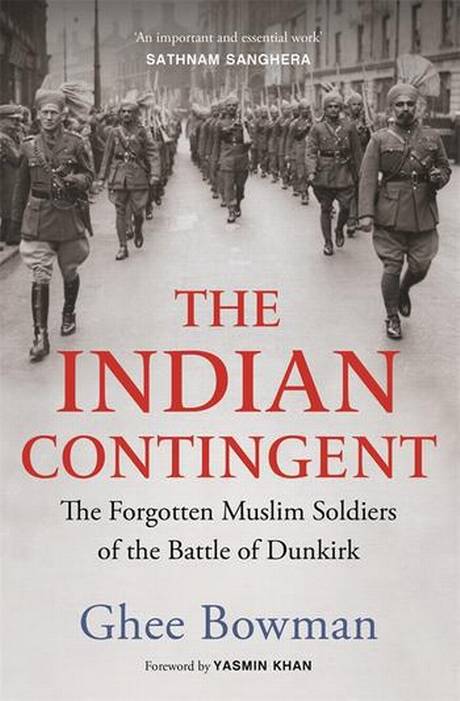INDIA (Pre-Partition) :

Tracking soldiers from the subcontinent who fought on the battlefields of Europe
Whether it’s Dunkirk or Iwo Jima, we tend to associate World War II with other countries. India, of course, was in the midst of the struggle for independence during the years of the war. But, since the country was a British colony, it was also dragged into the war not just in terms of materials being shipped. A crucial factor were the soldiers from India who fought on the battlefields of Europe but remain unknown.
Multiple threads
Of late, we have had books on the Indian participation in World War II and here is another which looks at soldiers from undivided Punjab who arrived in France in 1939 and returned to find their country on the verge of Partition.
Ghee Bowman’s The Indian Contingent: The Forgotten Muslim Soldiers of the Battle of Dunkirk focuses on a group called Force K6, who were largely from the northwest provinces, now in Pakistan. They were part of the mule transport companies, which helped the British army transport supplies in areas where trucks could not reach. During the Battle of Dunkirk, some of these men were captured but many escaped to Britain and were relocated to various parts of the U.K. where they helped in the infantry training.
Bowman doesn’t lump all the individuals together into one unit. Each person has a story and he unravels the multiple threads till the reader gets a complete picture of the “poets and musicians, cooks and carpenters and a veterinarian… writers, cinema lovers, boyfriends and parents” — as author Yasmin Khan puts it in the Foreword — who comprised the Force K6.
On the one end you have poetry-writing Aurangzeb who died as an 18-year-old in Wales and is still remembered in his village in Pakistan; at the other is mule driver Mahmud Khan who is captured by the Germans, forced to join the Indian Legion, seduces his German officer’s daughter and a male orderly and escapes to Switzerland.
Forming bonds
Bowman also tracks the lives of the men in “obscure corners of the British Isles” where they “formed strong bonds with farmers, children and women”. Some of these bonds resulted in children and the story of Jeff Shapland who finds out about his father Jamal Khan much later in life is moving. Shapland recounts being singled out for his dark looks — at Leeds University South Asian men would talk to him in Hindi or Urdu and his landlady in Bristol wouldn’t let him eat in the common dining room, he was abused and punched by students at his school in Leicester —and how he came to accept himself.
There is a lovely little nugget of jemadar Malik Mohammed Khan visiting a school to hear Welsh folk songs and teaching the children a Punjabi lullaby that went ‘Sunate Sunate Sunate Krishna’. There are also anecdotes from those who were children at that time about their interactions with these soldiers.
In his Prologue, Bowman writes, “This book aims to reclaim them from the backwater and reinstate them in the mainstream: part of the current of recognition of Commonwealth and global contributions to the Second World War.” He has, indeed, succeeded in this.
The Indian Contingent: The Forgotten Muslim Soldiers of the Battle of Dunkirk; Ghee Bowman, Pan Macmillan, ₹699.
krithika.r@thehindu.co.in
source: http://www.thehindu.com / The Hindu / Home> Books> Review / by R. Krithika / October 02nd, 2021








